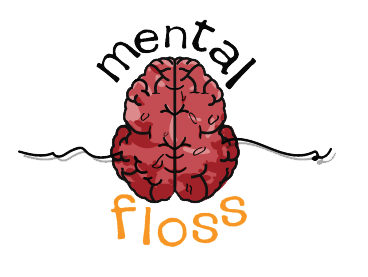A Brief Introduction.
Consulting psychiatrist, Dr Mark Whittington, uses the inherent power of expertly targeted metaphors to turbocharge the proven efficacy Cognitive Behavioural Therapy.
Expertly chosen, precisely targeted metaphors, refined over three decades of hands-on clinical practice, are effortlessly assimilated by our subconscious mind to reframe your thinking and deliver effective, patient-proven coping strategies. MentalFloss™ and the Metaphorical Therapy™ System take maximum advantage of many significant refinements to CBT and advances that have been made in brain science. MentalFloss helps through psychological education and by using healing immersive surround-sound journeys that we call MindMovies™ Welcome to help at the speed of sight and healing at the speed of sound.
The Product of Three Decades of Hands-on Clinical Experience.

MentalFloss™ combines the proven efficacy of cognitive behavioural therapy with the latest developments in brain science. But, more importantly, it harnesses the incredible inherent power of metaphors to bring desperately needed help and to millions of people suffering from the scourge of increasingly common potentially serious psychological problems like anxiety, depression and addiction.
Consulting psychiatrist Dr Mark Whittington draws upon more than thirty years of experience at the clinical coalface to turbocharge and streamline the delivery of Cognitive Behavioural Therapy through expertly chosen, patient-proven metaphors refined over decades of consulting practice. Our subconscious effortlessly assimilates these Metaphors to reframe thinking and deliver effective coping strategies.
Pilot Study Results:
How the Metaphorical Therapy System™ is shaping up to be the 4th wave in the ongoing evolution of CBT.
For nearly 50 years Cognitive Behavioural Therapy has been something of a gold standard shaped by three distinct waves of transformation: The first wave, behaviourism, established that behaviour is learned through conditioning. The second wave arrived in 1976 when Psychiatrist Dr Aaron Beck introduced Cognitive Behavioural Therapy (CBT), an approach that identifies and addresses distorted patterns thinking. The third wave came with the advent of Acceptance and Commitment Therapy (ACT) and Dialectical Behavioural Therapy (DBT).
Both Acceptance and Commitment Therapy and Dialectical Behavioural Therapy employ therapist-generated metaphors. Both of these proven, mainstream, metaphor-driven modalities minimise self-destructive behaviour by improving our ability to manage emotion and evaluate relationships which, in turn, dramatically improves one's ability to cope.
Viewed through the lens of more than 30 years of personal, hands-on clinical experience, these results strongly suggest that Metaphorical Therapy has the potential to become a legitimate fourth wave iteration of CBT and take its place alongside established mainstream therapies that have thoroughly proven the efficacy of employing targeted, expertly interconnected metaphors.
Our study compared the Metaphorical Therapy System to an equivalent CBT-based psychological education session. As expected, the results demonstrate improvement in both groups. However, in the Metaphorical Therapy group, there were positive trends in terms of better engagement and enjoyment among patients (both of which are positively correlated with outcomes in psychotherapy).
Dr Mark A Whittington
MB. Ch. M.P.M. FRANZCP
Consulting Psychiatrist
Open Science Direct Pilot Study PDF
WHO ARE WE?

DR MARK WHITTINGTON
Mark Whittington has spent a lifetime as a hands-on clinician where he has gained deep insight into the suffering of patients and the challenges faced by therapists.
After watching mental illness balloon into a global pandemic, he has dedicated his life to finding new ways for patients and therapists to help themselves.

GEORGE “GABY” BUSH
Gaby first met Mark as an exhausted, dangerously depressed refugee from the corporate world, where he had spent his life as a creative director in some of the world’s leading advertising agencies.
A serious breakdown led him to the good doctor's office. This path has led him to rehabilitation and the role of creative director for the system, which contributed to his recovery.
